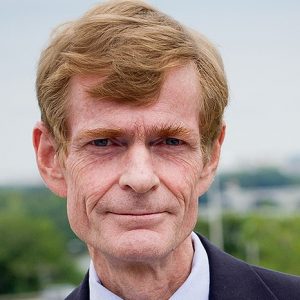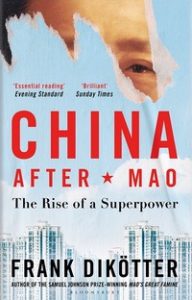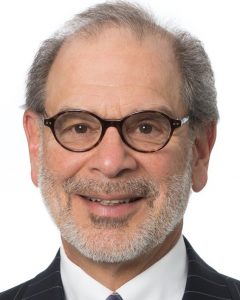EP 635 Why Do We Have a Teacher Shortage in America? There Are Many Reasons
 The American public education system, K-12, is plagued with problems at this moment. On the heels of a pandemic that turned teaching from one of the most impactful, personal professions into one in which remote exchanges were dominant, this just begins to scratch the surface. We find an inability to recruit enough qualified college graduates into the teaching profession, stagnant compensation, which certainly contributes to the former, heavier workloads and declining prestige for those who enter the field. According to the National Center for Education Statistics, the number of students graduating from college with bachelor’s degrees in education fell from 176,307 in 1970-71 to 85,058 in 2019-2020. And wages are essentially unchanged from 2000 to 2020 after adjusting for inflation. Matthew Kraft of Brown University and, our guest, Melissa Arnold Lyon of the University at Albany, State University of New York, in their 2022 paper “The Rise and Fall of the Teaching Profession: Prestige, Interest, Preparation, and Satisfaction Over the Last Half Century,” tracked trends on “four interrelated constructs: professional prestige, interest among students, preparation for entry and job satisfaction” over 50 years. She has a conversation with me about their findings.
The American public education system, K-12, is plagued with problems at this moment. On the heels of a pandemic that turned teaching from one of the most impactful, personal professions into one in which remote exchanges were dominant, this just begins to scratch the surface. We find an inability to recruit enough qualified college graduates into the teaching profession, stagnant compensation, which certainly contributes to the former, heavier workloads and declining prestige for those who enter the field. According to the National Center for Education Statistics, the number of students graduating from college with bachelor’s degrees in education fell from 176,307 in 1970-71 to 85,058 in 2019-2020. And wages are essentially unchanged from 2000 to 2020 after adjusting for inflation. Matthew Kraft of Brown University and, our guest, Melissa Arnold Lyon of the University at Albany, State University of New York, in their 2022 paper “The Rise and Fall of the Teaching Profession: Prestige, Interest, Preparation, and Satisfaction Over the Last Half Century,” tracked trends on “four interrelated constructs: professional prestige, interest among students, preparation for entry and job satisfaction” over 50 years. She has a conversation with me about their findings.
Link to Paper discussed in this podcast
Podcast: Play in new window | Download
 While the community’s shock over what happened in 2012 at Sandy Hook Elementary School can never be erased, the new school built nearby is meant to refocus thoughts to the future and designed to make it less susceptible to anything like it ever happening again. There is no way to harden a school beyond the possibility for an attack, but there are many approaches you can take to minimize the risk, according to Jay Brotman, Managing Partner of Svigals and Partners, the architectural firm in New Haven, Connecticut chosen to rebuild the school. In the podcast, he describes the approaches taken to both secure the facility, but still make it warm and inviting for students and teachers. The philosophy employed, and substantial input gathered from the community incorporated into the new design, is contained in the firm’s paper entitled “Building Safer Schools That Don’t Look Like Prisons”. This is an important conversation as communities address this issue nationwide.
While the community’s shock over what happened in 2012 at Sandy Hook Elementary School can never be erased, the new school built nearby is meant to refocus thoughts to the future and designed to make it less susceptible to anything like it ever happening again. There is no way to harden a school beyond the possibility for an attack, but there are many approaches you can take to minimize the risk, according to Jay Brotman, Managing Partner of Svigals and Partners, the architectural firm in New Haven, Connecticut chosen to rebuild the school. In the podcast, he describes the approaches taken to both secure the facility, but still make it warm and inviting for students and teachers. The philosophy employed, and substantial input gathered from the community incorporated into the new design, is contained in the firm’s paper entitled “Building Safer Schools That Don’t Look Like Prisons”. This is an important conversation as communities address this issue nationwide. Some Congressional leaders say that all we have to do to get control of our raging national debt is to cut out waste, fraud and abuse. Scour the voluminous federal budget and you will not find line items with those designations. Were it so easy. Mind you we’re over $31 trillion in the hole now and add a trillion or more to it each year(except much more during, say, a pandemic). The hard truth is that much of the federal budget is on autopilot–like Social Security and Medicare–and few in Congress have the desire to even begin to give a hard look at these programs and determine if structural changes need to be made. This is occurring as the ticking clock tells us there’s trouble ahead when current benefits to seniors in these programs will not be met by projected revenues within a decade. There are revenue increases, benefit cuts or changes in eligibility standards available, but is there political will to manage this problem? The looming debt ceiling debate has brought the issue to the fore but President Biden is demanding that the default on US debt obligations not be a condition of any negotiation on the long term debt problem. Robert Bixby, executive director of The Concord Coalition(concordcoalition.org), a non- partisan organization that encourages fiscal responsibility in Washington, joins us to discuss.
Some Congressional leaders say that all we have to do to get control of our raging national debt is to cut out waste, fraud and abuse. Scour the voluminous federal budget and you will not find line items with those designations. Were it so easy. Mind you we’re over $31 trillion in the hole now and add a trillion or more to it each year(except much more during, say, a pandemic). The hard truth is that much of the federal budget is on autopilot–like Social Security and Medicare–and few in Congress have the desire to even begin to give a hard look at these programs and determine if structural changes need to be made. This is occurring as the ticking clock tells us there’s trouble ahead when current benefits to seniors in these programs will not be met by projected revenues within a decade. There are revenue increases, benefit cuts or changes in eligibility standards available, but is there political will to manage this problem? The looming debt ceiling debate has brought the issue to the fore but President Biden is demanding that the default on US debt obligations not be a condition of any negotiation on the long term debt problem. Robert Bixby, executive director of The Concord Coalition(concordcoalition.org), a non- partisan organization that encourages fiscal responsibility in Washington, joins us to discuss. It was only a few years ago when mention of mental health concerns was done in whispered tones. Today, perhaps owing to the pandemic and its after effects, people openly share their anxiety, sleeplessness and other manifestations of mental anguish in these uncertain times. All this has been exacerbated by economic and political worries. Chuck Ingoglia, CEO of the National Council for Mental Wellbeing (www.thenationalcouncil.org ) joins us to discuss a range of issues explaining the growing awareness and interest in mental health as well as the concerns about access to treatment, its expense and the role the federal government is playing in attempting to realize the goal of giving our mental health needs parity with our physical health concerns.
It was only a few years ago when mention of mental health concerns was done in whispered tones. Today, perhaps owing to the pandemic and its after effects, people openly share their anxiety, sleeplessness and other manifestations of mental anguish in these uncertain times. All this has been exacerbated by economic and political worries. Chuck Ingoglia, CEO of the National Council for Mental Wellbeing (www.thenationalcouncil.org ) joins us to discuss a range of issues explaining the growing awareness and interest in mental health as well as the concerns about access to treatment, its expense and the role the federal government is playing in attempting to realize the goal of giving our mental health needs parity with our physical health concerns. We put up signs and cheered and serenaded from rooftops and labelled “heroes,” healthcare workers, teachers, grocery clerks. delivery drivers, food processors, and we gave them a new label “essential”, when the COVID-19 pandemic swept across America. Before this event, we had spent the better part of forty years ignoring the worsening plight of working class people, often doing thankless jobs, here in America. “Essential” before this, they were not, by any measure. We did not pay them enough, protect their health enough or even thank them enough. The question is as the pandemic ebbs, has their status in our society really changed? You would think that in the face of a worker shortage (though our guest says it can be more aptly described as a “surplus of bad jobs”)we would bestow more value and benefits as a society and as companies. In his book, “Essential” How the Pandemic Transformed the Long Fight for Worker Justice,” Jamie McCallum makes the argument that some progress is being made, but it’s not nearly enough. We will give you a framework for discussing this important topic in your community and workplace on this podcast.
We put up signs and cheered and serenaded from rooftops and labelled “heroes,” healthcare workers, teachers, grocery clerks. delivery drivers, food processors, and we gave them a new label “essential”, when the COVID-19 pandemic swept across America. Before this event, we had spent the better part of forty years ignoring the worsening plight of working class people, often doing thankless jobs, here in America. “Essential” before this, they were not, by any measure. We did not pay them enough, protect their health enough or even thank them enough. The question is as the pandemic ebbs, has their status in our society really changed? You would think that in the face of a worker shortage (though our guest says it can be more aptly described as a “surplus of bad jobs”)we would bestow more value and benefits as a society and as companies. In his book, “Essential” How the Pandemic Transformed the Long Fight for Worker Justice,” Jamie McCallum makes the argument that some progress is being made, but it’s not nearly enough. We will give you a framework for discussing this important topic in your community and workplace on this podcast. When we read about China’s miracle economy, in large part, it is a myth. Politics, Communist style, trumps economics and the growth numbers you see heralding its economic output are likely unrealiable, partial or distorted for political purposes. Private business ownership as we know it does not exist there. The banks and major industries are subsets of the state apparatus that is a wholly owned subsidiary of the Chinese Communist Party. People, or shall we say, party members can accumulate much wealth in China, but like Jack Ma, of Alibaba, if you get too big the Party may bring you down, just as it once raised you up. In China it is said that the state is rich, but the people are poor. Regardless what we may envision, the standard of living for the average Chinese citizen has not risen in what are perceived as heady times for China. In his newest book,”China After Mao: The Rise of a Superpower” internationally renowned historian, Frank Dikotter, one of the leading China scholars in the world, debunks many myths we have about how things are going in China. Our complex relationship with China should not cloud our understanding that the CCP’s goal was never to join the democratic world, but to resist it-and ultimately defeat it.
When we read about China’s miracle economy, in large part, it is a myth. Politics, Communist style, trumps economics and the growth numbers you see heralding its economic output are likely unrealiable, partial or distorted for political purposes. Private business ownership as we know it does not exist there. The banks and major industries are subsets of the state apparatus that is a wholly owned subsidiary of the Chinese Communist Party. People, or shall we say, party members can accumulate much wealth in China, but like Jack Ma, of Alibaba, if you get too big the Party may bring you down, just as it once raised you up. In China it is said that the state is rich, but the people are poor. Regardless what we may envision, the standard of living for the average Chinese citizen has not risen in what are perceived as heady times for China. In his newest book,”China After Mao: The Rise of a Superpower” internationally renowned historian, Frank Dikotter, one of the leading China scholars in the world, debunks many myths we have about how things are going in China. Our complex relationship with China should not cloud our understanding that the CCP’s goal was never to join the democratic world, but to resist it-and ultimately defeat it. The First Amendment and freedom of speech allow us to say what we want, but: we can’t yell “fire!” in a crowded theater; we can’t incite a riot; and since the nation’s founding, there have always been some types of political and obscene speech that could send you to jail. Professor Dennis Baron’s timely new book, “You Can’t Always Say What You Want: The Paradox of Free Speech” points out these exceptions, the “free speech, but”-what happens when the right of speech runs up against the government’s efforts to control it, and what types of threats to speech we will face in the propulsion of commentary on the internet. Free speech is a much more nuanced topic when you realize that the First Amendment pertains only to the government not making laws to limit it. Your boss or family members can ascribe whatever limits they choose. Even the government has limited speech when it might be injurious to a war effort or an enemy like, Soviet Communism in much of the 20th century. And today we see self-described free speech absolutist, Elon Musk, throwing people whose opinions he does not like off of Twitter. We will try to untangle a complex issue on this podcast.
The First Amendment and freedom of speech allow us to say what we want, but: we can’t yell “fire!” in a crowded theater; we can’t incite a riot; and since the nation’s founding, there have always been some types of political and obscene speech that could send you to jail. Professor Dennis Baron’s timely new book, “You Can’t Always Say What You Want: The Paradox of Free Speech” points out these exceptions, the “free speech, but”-what happens when the right of speech runs up against the government’s efforts to control it, and what types of threats to speech we will face in the propulsion of commentary on the internet. Free speech is a much more nuanced topic when you realize that the First Amendment pertains only to the government not making laws to limit it. Your boss or family members can ascribe whatever limits they choose. Even the government has limited speech when it might be injurious to a war effort or an enemy like, Soviet Communism in much of the 20th century. And today we see self-described free speech absolutist, Elon Musk, throwing people whose opinions he does not like off of Twitter. We will try to untangle a complex issue on this podcast. When the internet was a shiny new object, it was understandable that we did not take security that seriously. But today it is home to most of the important information in our lives, including our financial records. The same holds true for corporations and nations, including delicate information that can affect our national security as well as our critical infrastructure. At the same time, the ability to hack the internet is not only possible by malevolent nation-states, but also bad actors and hacker gangs who do it for a range of reasons, including large ransoms. Unlike in the analog world there is no cyber–Coast Guard that is going to come and bail us out if we lose our data. Yet, to date evidently, the penalty for going unguarded seems to be seen by most entities as less than the cost of putting up strict cyber walls against incursion. In his book “The Unhackable Internet”, Attorney Thomas Vartanian, with long experience in the financial and banking sector, suggests we are playing with fire and a cyber- Pearl Harbor is inevitable unless we take a number of steps that he lays out in the book.
When the internet was a shiny new object, it was understandable that we did not take security that seriously. But today it is home to most of the important information in our lives, including our financial records. The same holds true for corporations and nations, including delicate information that can affect our national security as well as our critical infrastructure. At the same time, the ability to hack the internet is not only possible by malevolent nation-states, but also bad actors and hacker gangs who do it for a range of reasons, including large ransoms. Unlike in the analog world there is no cyber–Coast Guard that is going to come and bail us out if we lose our data. Yet, to date evidently, the penalty for going unguarded seems to be seen by most entities as less than the cost of putting up strict cyber walls against incursion. In his book “The Unhackable Internet”, Attorney Thomas Vartanian, with long experience in the financial and banking sector, suggests we are playing with fire and a cyber- Pearl Harbor is inevitable unless we take a number of steps that he lays out in the book. In America we play hail to the founder and the brilliant chief executive who started a company from scratch, though we realize that whether it’s Elon Musk or Jeff Zuckerberg, they have their feet of clay. The spoils go to them and outside shareholders who invest in the company, which has led to a yawning wealth gap in America. Wages, less and less, can cover the bills and social trust is eroding, There are ongoing debates about what to do, but one key solution is rarely discussed. Why not spread business ownership around and let workers benefit from the capitalist dreams they have helped to create? In the book, “Ownership: Reinventing Companies, Capitalism, and Who Owns What”, our guest, Corey Rosen, founder of the National Center for Employee Ownership and his co-author, John Case. explain why so many companies end up being owned by Wall Street shareholders or private equity firms–and why that kind of ownership encourages a focus on short-term profits rather than long-term sustainability. The heart of the book takes us inside the concept of employee ownership as a concept and how to expand it in America. Given the bipartisan support for the concept, it seems like an idea whose time has come.
In America we play hail to the founder and the brilliant chief executive who started a company from scratch, though we realize that whether it’s Elon Musk or Jeff Zuckerberg, they have their feet of clay. The spoils go to them and outside shareholders who invest in the company, which has led to a yawning wealth gap in America. Wages, less and less, can cover the bills and social trust is eroding, There are ongoing debates about what to do, but one key solution is rarely discussed. Why not spread business ownership around and let workers benefit from the capitalist dreams they have helped to create? In the book, “Ownership: Reinventing Companies, Capitalism, and Who Owns What”, our guest, Corey Rosen, founder of the National Center for Employee Ownership and his co-author, John Case. explain why so many companies end up being owned by Wall Street shareholders or private equity firms–and why that kind of ownership encourages a focus on short-term profits rather than long-term sustainability. The heart of the book takes us inside the concept of employee ownership as a concept and how to expand it in America. Given the bipartisan support for the concept, it seems like an idea whose time has come. When the Covid-19 pandemic first hit the United States in 2020, it affected nearly every aspect of our daily lives, hitting even the biggest businesses and corporations. The meat industry was no exception. While the illness and new regulations for distancing and masked slashed the workforce and led to supply shortages, it also sharpened our focus on the awful conditions of slaughterhouses and meat packing factories. Add to this the fact that meat production is one of the greatest culprits in our battle to avoid the worst impacts of climate change and near monopolistic practices brought about by years of consolidation and you have an industry worth reporting seriously on and being concerned about. That’s exactly what Chloe Sorvino does in her expose titled “Raw Deal: Hidden Corruption, Corporate Greed, and the Fight for the Future of Meat”. She joins us to unpack the story.
When the Covid-19 pandemic first hit the United States in 2020, it affected nearly every aspect of our daily lives, hitting even the biggest businesses and corporations. The meat industry was no exception. While the illness and new regulations for distancing and masked slashed the workforce and led to supply shortages, it also sharpened our focus on the awful conditions of slaughterhouses and meat packing factories. Add to this the fact that meat production is one of the greatest culprits in our battle to avoid the worst impacts of climate change and near monopolistic practices brought about by years of consolidation and you have an industry worth reporting seriously on and being concerned about. That’s exactly what Chloe Sorvino does in her expose titled “Raw Deal: Hidden Corruption, Corporate Greed, and the Fight for the Future of Meat”. She joins us to unpack the story.